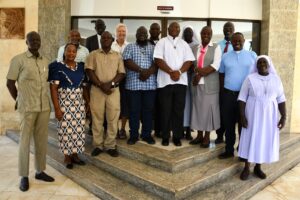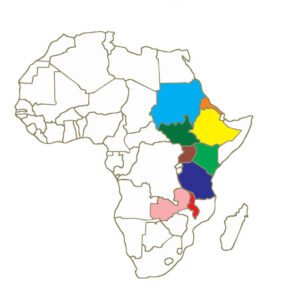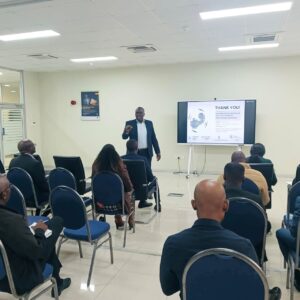ETHIOPIA: Addis Ababa Hosts the 3rd World Interfaith Harmony Week, Celebrates AU’s Inclusion to G20
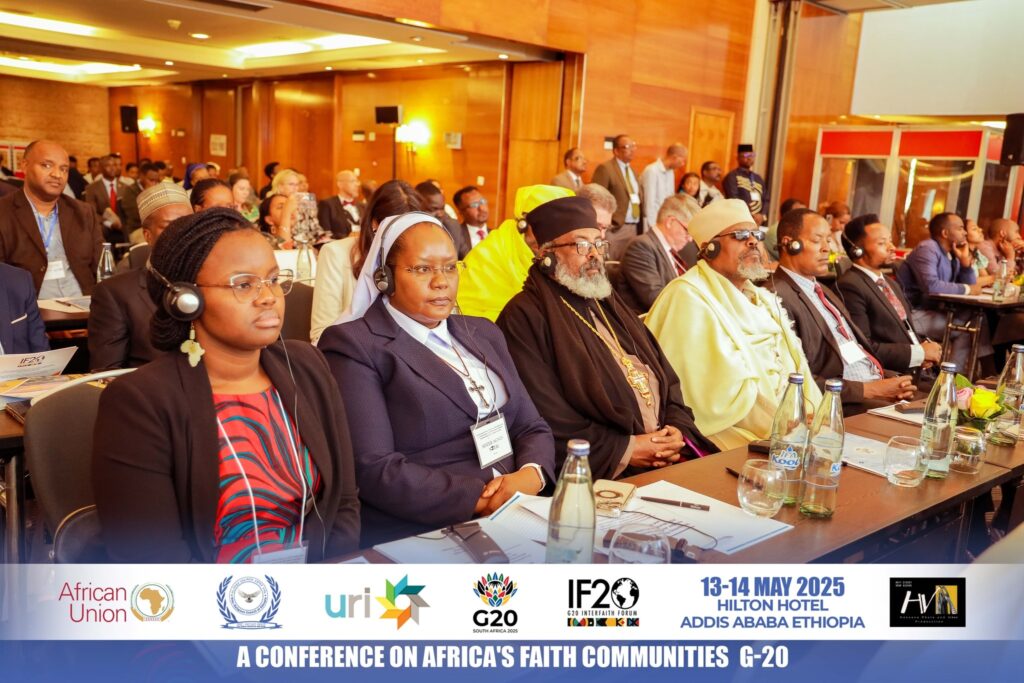
Bezawit Assefa
The spirit of the ‘Golden Rule: Treat others as you would like to be treated,’ and the African philosophy of ‘ubuntu’ brought together diverse religious communities for the 3rd World Interfaith Harmony Week, held in Addis Ababa, Ethiopia. The event, which aimed at fostering unity and collaboration among faith groups, coincided with the African Union’s recent inclusion as a member of the G20.
The high-level interfaith forum was convened at the Hilton International Hotel under the theme “Advancing Sustainable Development Goals, the African Union Agenda 2063, and South Africa’s 2025 G20 Summit.” Organized through a collaborative effort by the Inter-Religious Council of Ethiopia, the African Union, and the United Religions Initiative, the conference emphasized the role of faith in driving sustainable and inclusive development across the continent.
Distinguished guests included H.E. Ambassador Taye Atsikesillassie, President of the Federal Government of Ethiopia; H.E. Mahmoud Ali Youssouf, Chairperson of the African Union Commission; and His Excellency Abune Tesfasillasie, Auxiliary Bishop of the Archdiocese of Addis Ababa, alongside numerous faith leaders from various denominations.
The President of Ethiopia stated that this conference makes a significant contribution to justice and peace in Africa, citing the Golden Rule as a guiding principle. Additionally, the conference’s resolution is expected to serve as a valuable input to the national dialogue process in Ethiopia.
Key topics addressed during the conference ranged from faith communities’ contributions to the G20 agenda in Africa to climate challenges, women’s leadership, human trafficking, and interfaith cooperation for peacebuilding. Discussions also focused on freedom of religion, human dignity, and combating hate speech, xenophobia, and corruption.
H.E. Abune Tesfasillasie emphasized that “religious leaders” hold a unique position to actively contribute to the ongoing peacebuilding process due to their close and continuous engagement with individuals and the faithful.
The Catholic presence was strongly felt throughout the forum, with numerous priests, religious sisters, and Catholic leaders contributing to key discussions. Topics included peacebuilding, climate justice, religious freedom, combating human trafficking, and promoting women’s leadership many of which reflected core Catholic social teachings.
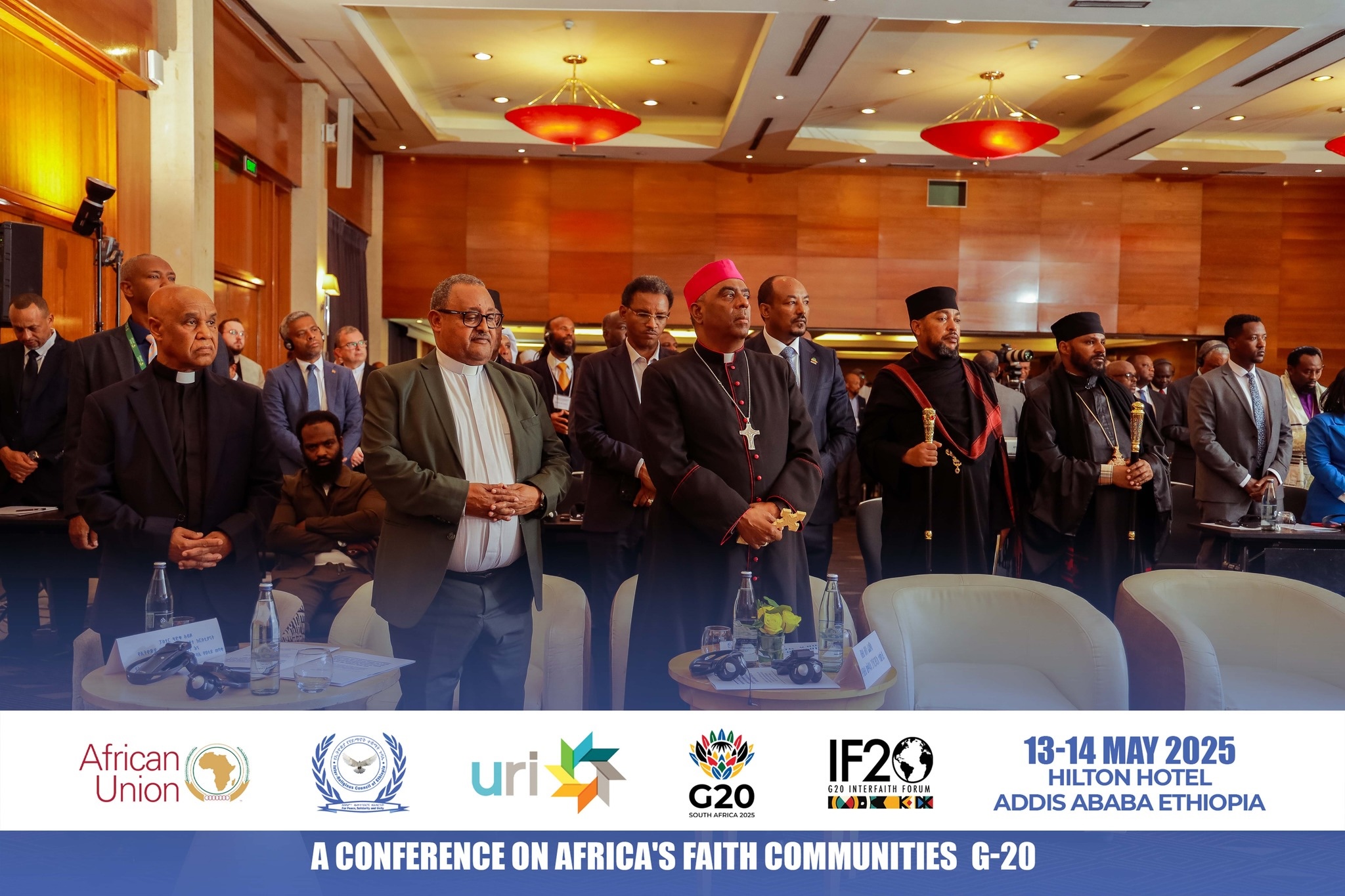 The conference also resonated with ongoing Catholic milestones, such as the Jubilee Year and the theme “Pilgrims of Hope”, as well as the 60th anniversary of Second Vatican Council that reaffirmed the Church’s mission in the modern world and the importance of unity among all people of faith.
The conference also resonated with ongoing Catholic milestones, such as the Jubilee Year and the theme “Pilgrims of Hope”, as well as the 60th anniversary of Second Vatican Council that reaffirmed the Church’s mission in the modern world and the importance of unity among all people of faith.
The teachings of the late Pope Francis, particularly his third encyclical Fratelli tutti, were frequently referenced as a guiding light for interfaith cooperation and universal brotherhood.
In a time marked by division and global uncertainty, the gathering underscored the growing influence of interfaith collaboration in shaping Africa’s role on the global stage and promoting inclusive progress through shared moral and spiritual values. The conference highly remarked the “Golden Rule” as it is foundational guideline for peaceful coexistence and is often invoked in interfaith and peacebuilding efforts, as it transcends specific religious doctrines and speaks to a shared human value.
The conference concluded with a moment of silence in remembrance of Pope Francis, honoring his legacy as a bridge-builder between faiths and a tireless advocate for the poor, the marginalized, and the planet.
